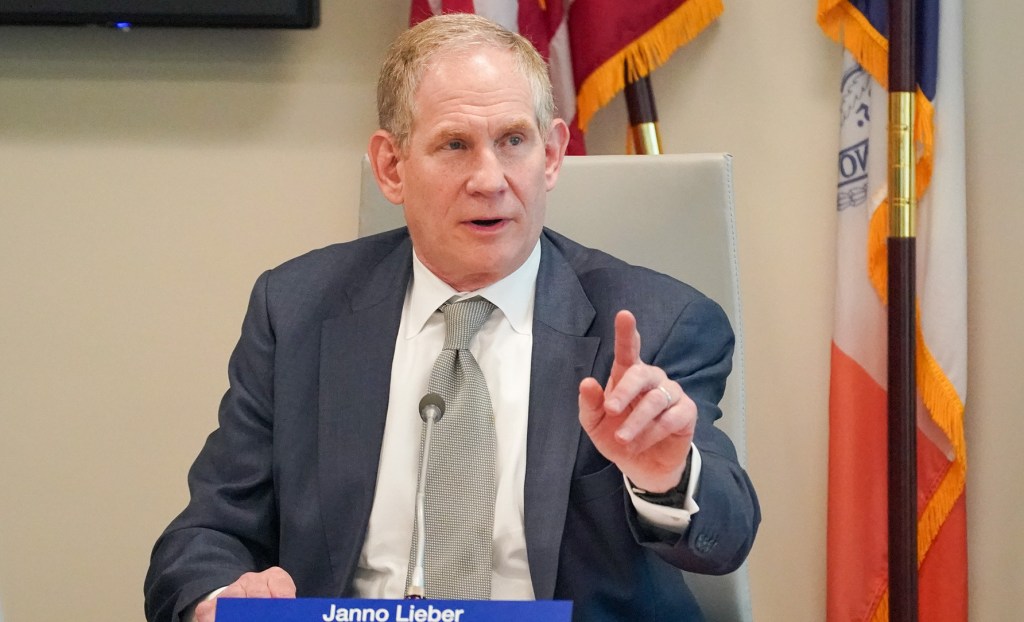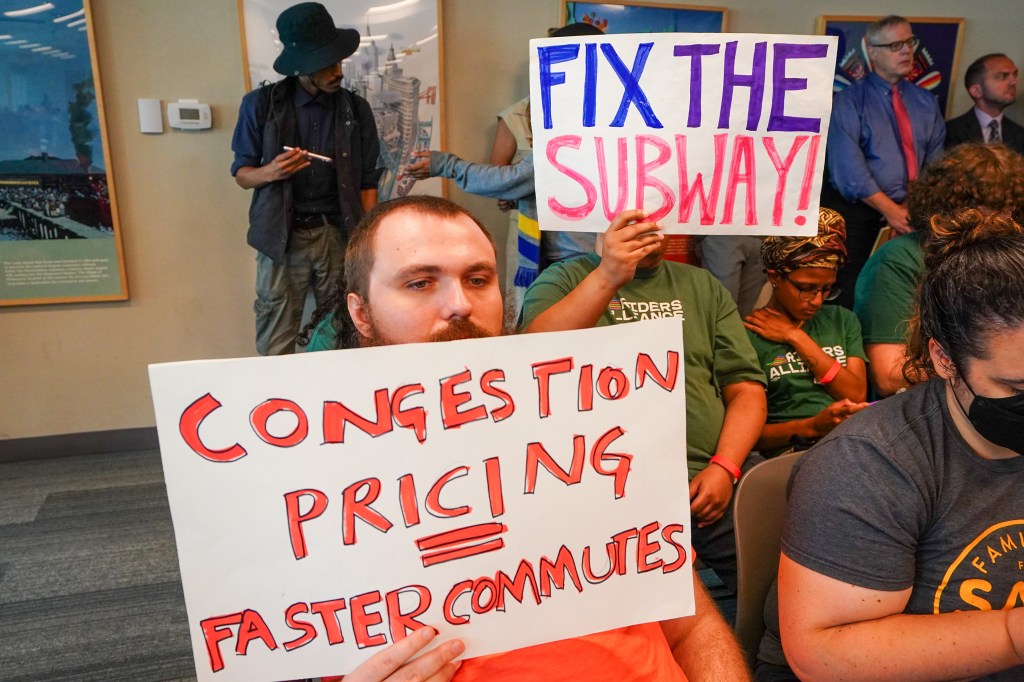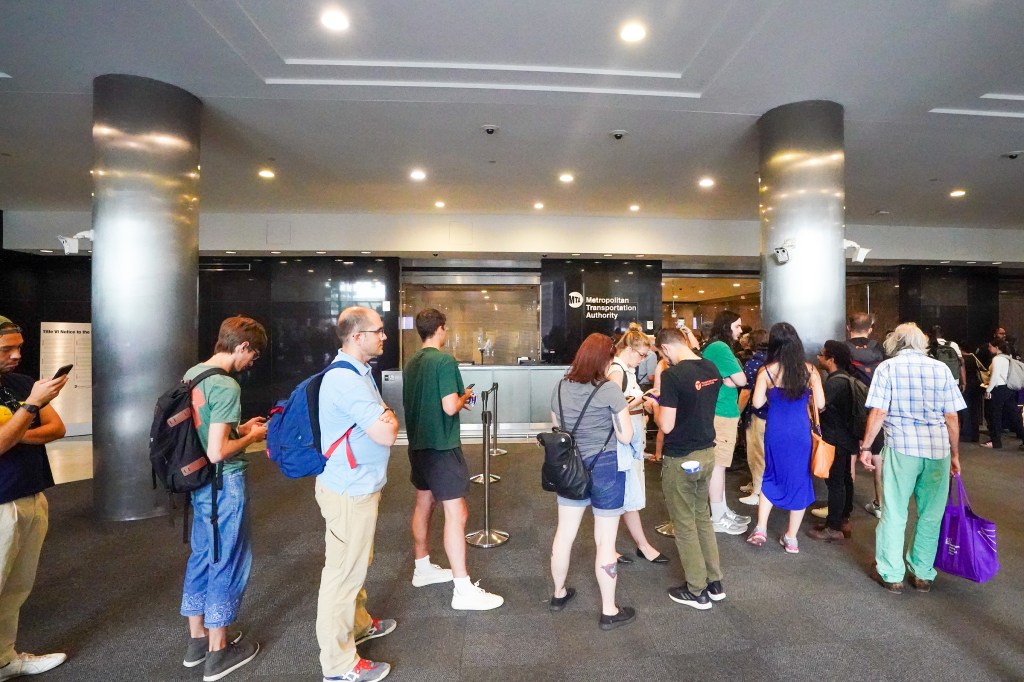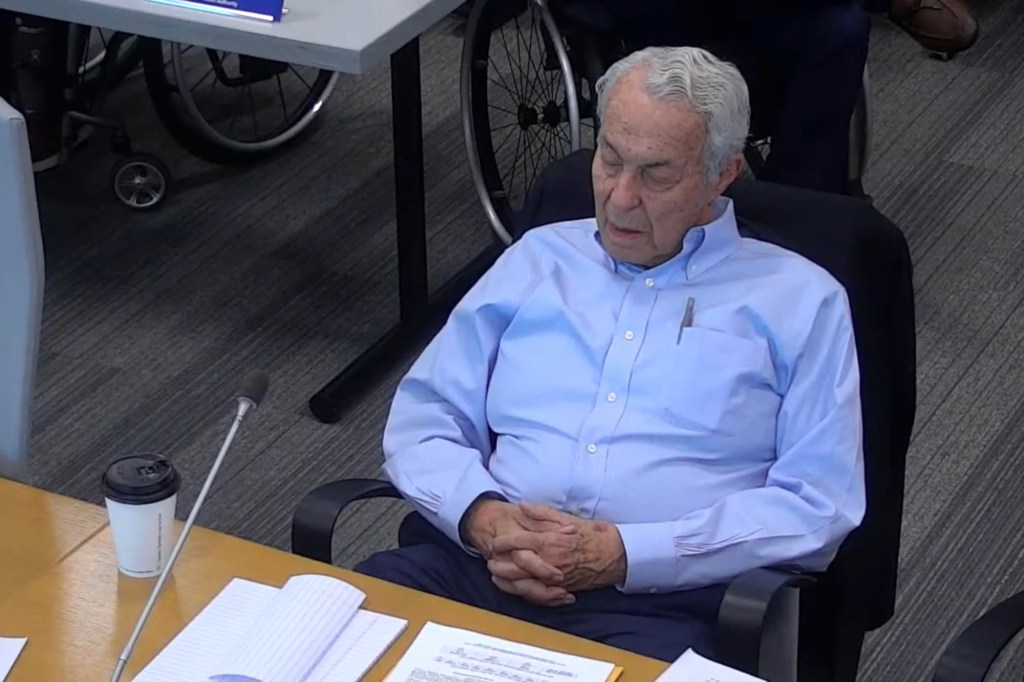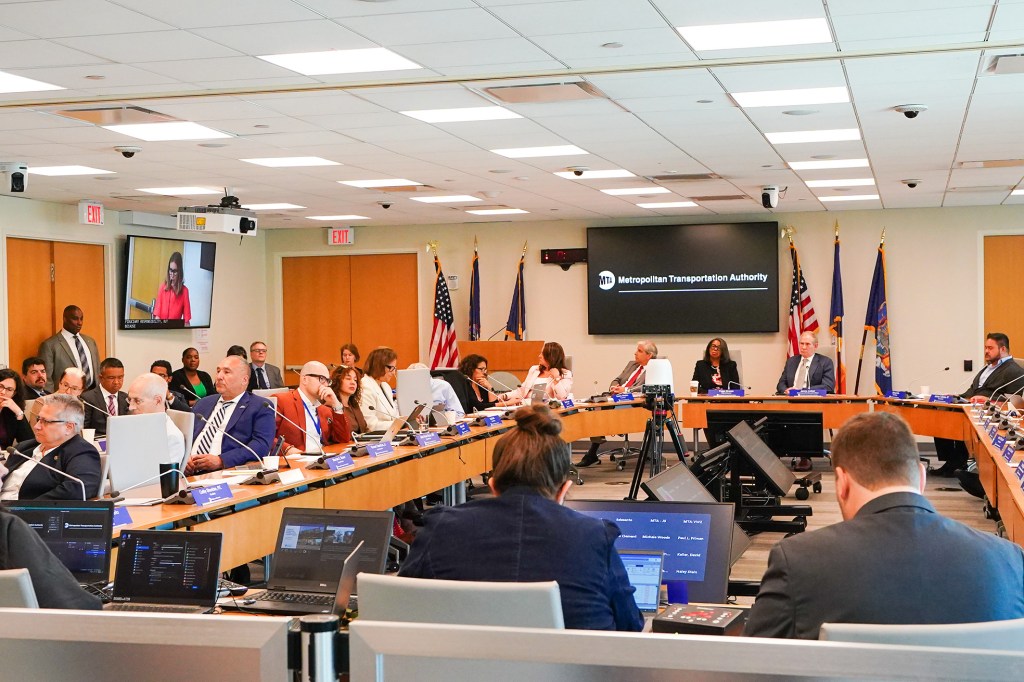MTA board reluctantly OKs Hochul’s congestion pricing pause, delays $16.5B in projects during heated meeting
Contact The Author
The MTA begrudgingly rubber-stamped Gov. Kathy Hochul’s indefinite pause of congestion pricing during a heated board meeting on Wednesday.
The 10-1 vote indefinitely slammed the brakes on $15 tolls for drivers heading into Manhattan south of 60th Street — and will effectively defer $16.5 billion for a slew of major projects such as the Second Avenue subway, officials said.
But Janno Lieber, the MTA’s top honcho, said the agency must stay ready to build projects that will be scrapped without congestion pricing’s $15 billion windfall, in the hope the toll is eventually resurrected.
“We will be ready to put Humpty Dumpty back together as quickly as possible,” Lieber said.
The normally monotonous board meeting drew more than 100 people, largely congestion pricing supporters who waited on line outside the MTA’s Broadway headquarters carrying signs that read “Gov, Stop Jamming Up Good Law,” “Fix the Subway!” and more.
Public speakers repeatedly urged the MTA board to “unpause the pause” and “flip the switch” on the tolling cameras.
“We should be celebrating a June 30th start date, not waiting to hear what accessibility projects will be cut, how long we’ll wait for signal upgrades and station improvements,” said Lisa Daglian, executive director of the Permanent Citizens Advisory Committee to the Metropolitan Transportation Authority.
Speakers against the congestion charge, including president of New Yorkers Against Congestion Pricing Tax Susan Lee and Assemblymember Michael Tannousis (R-Staten Island/Brooklyn), were hissed at by the crowd.
“I am a major opponent of congestion pricing because I believe, and evidence has shown, it would be fundamentally unfair to the outer boroughs, especially Staten Island and especially Bay Ridge,” Tannousis said.
“Don’t get me wrong, I am a user of mass transit. I use the Express bus and I also use the subway. However, this plan would have been to the benefit of a few and the detriment of many.”
Congestion pricing supporters had hoped board members would thwart Hochul’s pause, but Lieber argued that the tolls couldn’t go forward without the approval from the state department of transportation — meaning the governor.
Hochul, as New York’s governor, nominates every voting MTA board member, with four recommended by New York City’s mayor and another three put respectively put forward by the executives of Nassau, Suffolk and Westchester counties.
Mayor Eric Adams’ key appointees on the board — Deputy Mayor Meera Joshi and City Planning Director Dan Garodnick — voted for the pause. Hizzoner has said little about the governor’s decision, though, during a City Hall briefing Tuesday, suggested reducing double parking could be a solution to tackle congestion.
Joshi said the pause or “transition” can be used to improve the congestion toll program, such as providing exemptions or relief for certain workers to “get it across the finish line.”
The sole “no” vote was David Mack, a Nassau County developer and congestion pricing opponent who appeared to nod off during the meeting.
He said he voted against the resolution because he didn’t think it would permanently scrap tolls.
“In the long picture I cannot vote for this resolution,” Mack said.
Hochul, for her part, issued a lengthy statement after the vote touting her support for public transit and not once mentioning congestion pricing.
She instead promised unnamed “new revenue sources” will be found in next year’s budget — a potentially tall order given that lawmakers shot down the governor’s previous last-ditch funding plans for the MTA at the tail-end of the legislative session.
“While the timing of the next budget may necessitate temporary adjustments to the timeline of certain contracts, there is no reason for New Yorkers to be concerned that any planned projects will not be delivered,” Hochul’s statement reads.
Beyond the Second Avenue subway extension, the MTA will defer signal upgrades to six lines, halt planned accessibility improvements, buy 250 fewer electric buses and scrap upgrades to five stations, transit officials said.
Many MTA board members kept holding out hope their vote would only approve a temporary, not permanent, pause.
Lieber also signaled the congestion pricing cameras will stay up.
“We can keep the machinery of congestion pricing in operating order so it’s ready when the temporary pause is in fact lifted.”
